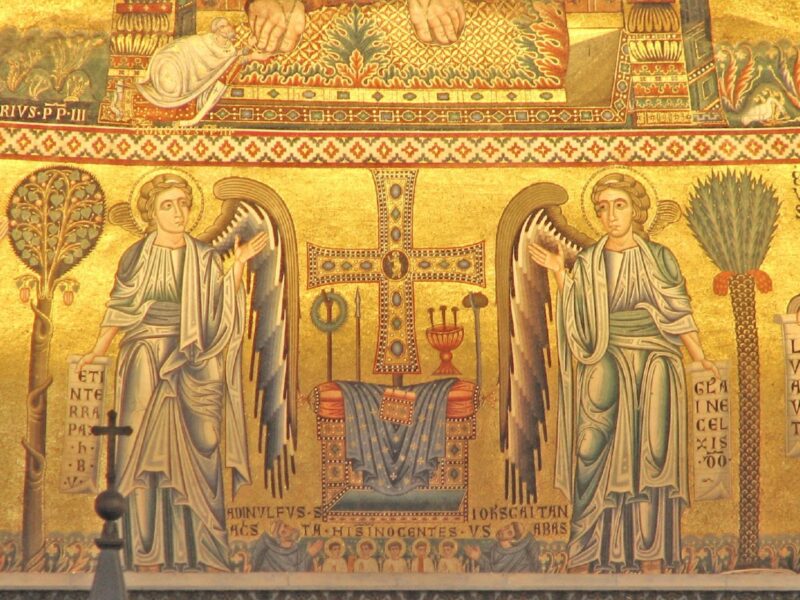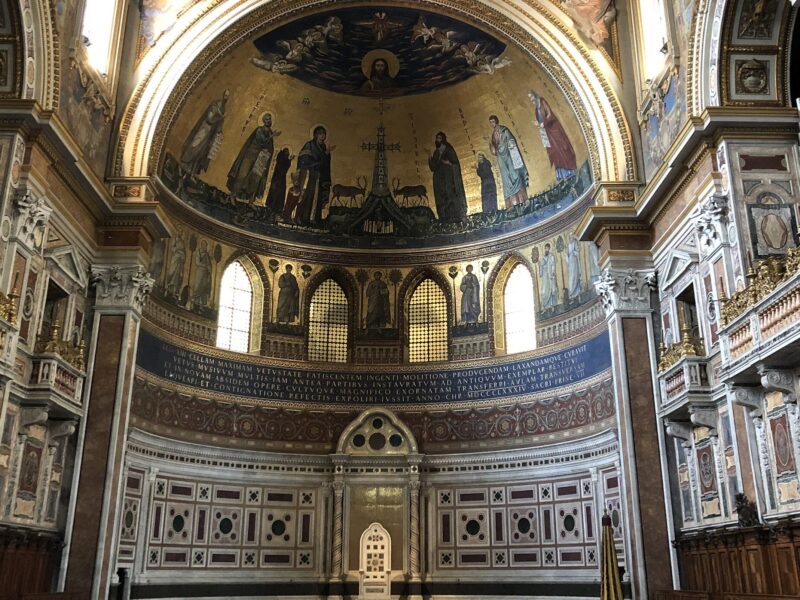
But Not Yet?
Twenty-second Sunday of the Year. Fr Timothy Radcliffe is confident that God will never abandon us to mediocrity.
St Peter confess that Jesus is ‘The Messiah, the Son of the Living God.’ Jesus then declares that he is Peter, the rock on which he will build his Church. But then everything goes pear-shaped. Peter cannot accept that Jesus must go to Jerusalem to suffer and die. ‘God forbid. No such thing shall happen to you.’ He has recognised who Jesus is but he cannot grasp what this means.
This is true of nearly all of us most of the time. We maintain that we are Christians and may even regularly go to Mass. But we flinch – I do – and stop our ears when we hear the radical demands of the Gospel, that we take up our cross and follow the Lord, that we give away all that we have to follow him, that our forgiveness of other should be boundless, that we should not anxious about tomorrow. Lovely ideas but, we may be tempted to think, unrealistic.
This is not unlike St John Henry Newman’s distinction between ‘real assent’ and ‘notional assent.’ I may assent to the Gospel in theory, but when it comes to the radical transformation of my life that it demands, I may think, ‘Not today.’ As St Augustine said, ‘Make me chaste, but not yet.’
Can we achieve that breakthrough into a full-blooded embrace of the Gospel? Not by ourselves, but the Lord will not leave us lost in mediocrity. Immediately after Peter’s failure, Jesus takes him, James and John up the mountain and is transfigured in their sight. They hear the voice from heaven, ‘This is my Son, the Beloved; with him I am well pleased. Listen to him.’ Slowly they will begin to understand what it means for Jesus to be the Anointed One, and they will walk with him to the place of death and resurrection. They will argue on the way about who is greatest; Peter will deny his Lord; most of them will flee in Jesus’ time of trial. But they are being taught by God, with infinite patience, to listen to him and to learn the strange ways of God. In the end they all die as martyrs.
Most of the time I have no desire to take up my cross and follow the Lord to Jerusalem. That sounds much too uncomfortable and even masochistic. But we do not need to look for the cross. We shall find it when the time is ripe, whether in illness, failure, the loss of people whom we love and one day, death. Then we shall, with the grace of God, pick up our cross not because it is good to be beaten up, but because such moments are given to us and belong to our transformation by grace. In such moments we shall, as St Paul said in the second reading, ‘be transformed by the renewal of your mind, that you may discern what is the will of God, what is good and pleasing.’
In retrospect, I can see that I have often sought to evade this path into life and light. Not yet Lord! But God does not give up. Listen to him! Jeremiah did not want to be a prophet! Far too uncomfortable and painful, but God will not let him go: ‘You duped me, O Lord, and I let myself be duped; you were too strong for me, and you triumphed.’ God is not bullying Jeremiah or forcing him to accept the divine will. God is releasing his inner freedom, healing his conflicted will. I suspect that Jeremiah smiled a bit as he protested.
Shigeto Oshida was a Japanese Dominican who described himself as a Buddhist who met Christ. He joked that God had tricked him into becoming a Christian. He met a marvellous Catholic priest and assumed that all Christians were as wonderful, but he was wrong. Then he met a deeply prayerful, mystical Dominican, and thought that we must all be like that. Tricked again. With infinite patience and creativity, God keeps on knocking at the door of our lives, sometimes with utter discretion and at other times with insistence, until we open and embark on the road to freedom and joy. God does not give up on us.
Readings: Jeremiah 20:7-9 | Romans 12:1-2 | Matthew 16:21-27
Image: the Prophet Jeremiah at the foot of the Colonna dell’Immacolata, at the end of the Piazza di Spagna, Rome (1857), photographed by Ian Scott, CC BY-SA 2.0



Alejandro Clausse
“God does not give up on us” … What a profound thought!
I liked the Shigeto Oshida’s accounts of the divine tricks that lead him into becoming a Christian. Have we not all experienced similar tricks? I think I did. However, I just couldn’t stop thinking that the same could be said about the devil’s tricks on us, like C.S. Lewis imagined in The Screwtape Letters. I guess confidence in God’s providence and mercy is the final solution, right?